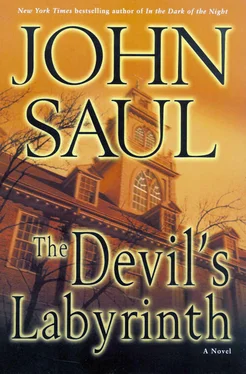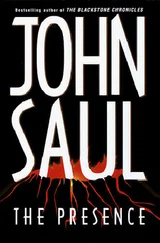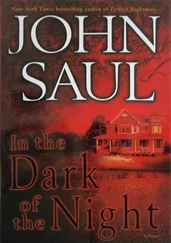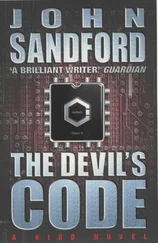Teri tried to scowl, but couldn’t quite pull it off. “But I won’t be able to enjoy the meal, or you, or anything else,” she sighed.
“You’ll enjoy it more than you’ll enjoy just sitting here. So maybe you won’t be scintillating. Who cares? Just leave him a note and have him call you on your cell when he gets home. And I promise if he’s not home by the time we get back, I’ll not only help you track him down, but do half the worrying, too. Okay?”
He was right — of course he was right. And if it hadn’t been for the dinner date — a date Ryan hadn’t really wanted to go on at all — she wouldn’t even be worried. Probably all that had happened was that he’d changed his mind about having dinner with them, and hadn’t called because he didn’t want to let himself get talked back into it. She took the phone back to the kitchen and scribbled a note to Ryan, leaving it on the refrigerator where he couldn’t miss it. Then she checked her cell phone for messages one last time, made sure it had enough charge and dropped it into her purse.
“Okay,” she sighed as she returned to the living room. “I guess I’m ready.” But as she slid into the car a minute later, she knew she wasn’t ready at all. Despite Tom’s words about enjoying the evening, she was certain that all she would do would be to worry about Ryan.
Something, she just knew, had happened to him.
She couldn’t explain it, but she knew.
She knew, the way a mother always knows.
† † †
Caleb Stark filled his mop bucket with hot, soapy water from the big sink in the custodial closet, then pulled the rolling bucket behind him down the long hallway that ran the entire length of the second floor of Dickinson High.
There was new graffiti on some of the lockers in the west wing, and someone had spilled something slimy down the stairs from the second-floor landing. The goo was important — Caleb remembered that clearly — anything on the floor had to be cleaned up, especially if someone could slip and fall on it. Then, if he had time, he could work on cleaning the graffiti off the lockers.
But even before going after the slimy stuff, he had to tend to all the things he was supposed to do every day, because if he didn’t tend to them in the same order every day, he’d lose track, and some things might not get done. And if that happened, his counselor might decide he wasn’t smart enough to live on his own after all, and send him back to the halfway house.
And then his mother would be disappointed, and she might cry, and Caleb hated it when his mother cried.
Telling himself not to forget about the slimy stuff, Caleb pushed his cart down the corridor, found the big, wooden doorstop, and opened the boys’ bathroom door. It was while he was sticking the doorstop under the heavy door to prop it open that he saw the dark red footprint on the linoleum. At first Caleb thought it might be some kind of mud, or maybe even paint from the art classroom down the hall, but as he followed the tracks farther into the restroom, he saw that the stuff wasn’t mud or paint at all.
It was blood.
And a boy was lying in the middle of the bathroom floor, with a big puddle of blood around his head, which had oozed along the grout joints between the tiles.
“Holy Jesus,” he whispered softly, his mind suddenly spinning as he tried to remember what he was supposed to do if something like this ever happened.
He stepped a little closer, trying to get a better look at the boy’s face, but he was pretty sure he wouldn’t recognize him even if it was someone he knew because his face was all covered with blood.
And he looked dead, too.
But as Caleb stood staring at the boy, still trying to remember what he was supposed to do, the boy suddenly took a ragged breath and moaned.
Either the slight movement or the sound made something click in Caleb’s mind, and he suddenly knew what to do. “If you’re ever hurt, or really sick, find a phone,” his counselor had explained to him when he was moving into his own little apartment. “Then dial 911, and tell them where you are. And someone will come to help you.” The counselor’s words echoing in the depths of his memory, Caleb dropped his mop and hurried from the bathroom to the faculty lounge, where he knew there was a telephone. He spoke very clearly, and told them exactly where the boy was, in the restroom on the second floor of the main building of Dickinson High.
Then he went back to the restroom to see if he could help the boy, and maybe five minutes later, a bunch of people started arriving, just like his counselor had told him would happen.
Someone was kneeling at the boy’s side, and police were milling about in the hallway. Caleb watched from the doorway, nervously twisting at his forelock. “Is he going to be all right?” he asked as two men wearing some kind of jumpsuits brought in a stretcher and lifted the boy onto it.
“Hope so,” one of the paramedics said, handing Caleb the boy’s bloody backpack. “Here. Find out who he is and get in touch with his parents.”
Caleb, uncertain what he was supposed to do, started to open the backpack, but even before he could look inside it one of the school’s security guards took it away from him. “Tell you what, Caleb,” the guard told him. “Why don’t I do that, and you can go call the principal and tell him he better come over here.” He handed Caleb a card with a telephone number on it, and steered him out the door.
Caleb, grateful for the simpler task of just calling the principal, started toward the faculty lounge for the second time, and as he passed the slimy stuff on the stairs, reminded himself to make sure he cleaned it up before he went home.
The graffiti, though, was going to have to wait for another night.
BROTHER FRANCIS NERVOUSLY wended his way through the Boston traffic as Father Sebastian gazed silently out the side window.
“Kip’s parents live in Newton,” Brother Francis offered, more to break the silence than anything else. “It’s a little bit west of the city, but not very far.”
Father Sebastian finally turned toward him and smiled slightly, and Francis could see why the students — at least the girls — liked him so much. There was something in his face that was both gentle and intense, giving anyone who talked to him the feeling that he was not only listening to them intently, but empathized with whatever they were saying. Combined with his olive complexion, deep dark eyes, and thick, coal-black hair, he struck most people as being someone who could as easily have been a doctor as a priest. Or even a movie star, though he seemed so completely unaware of his effect on people that Brother Francis was sure he’d never even thought of such a thing.
“Not a problem,” Father Sebastian said. “I can’t say I’m looking forward to this any more than you are. Any idea what the Adamsons are like?”
Brother Francis pulled off the turnpike, found Centre Street, and started south. “I haven’t actually met them, but I took a look at Kip’s file before we left.”
“So did I,” Father Sebastian sighed. “And it didn’t tell me as much about the parents as it did about Kip. On the other hand, there wasn’t anything negative about the family, so it seems to me that our main job is to find out if they’ve heard anything from him without getting them too upset.”
“It’s their son,” Brother Francis said, turning left on Beacon Street. “He’s missing — they’re bound to be upset.” He turned right onto Greenlawn Avenue and started looking for the address. “Here it is,” he said, pulling the car to a stop in front of an utterly nondescript middle-class home, which told him no more about Kip’s family than the file had. He switched off the engine.
Читать дальше












